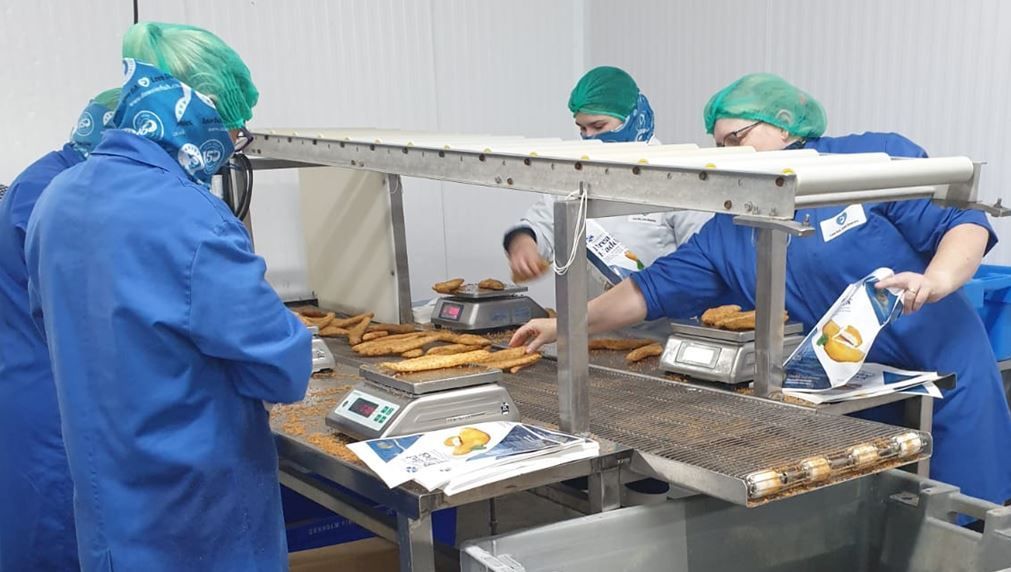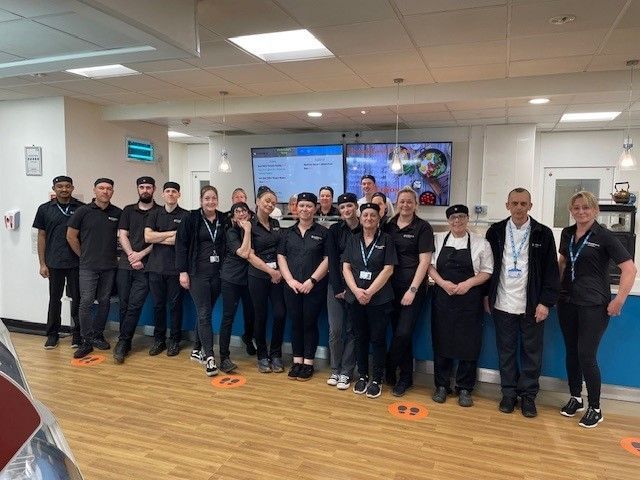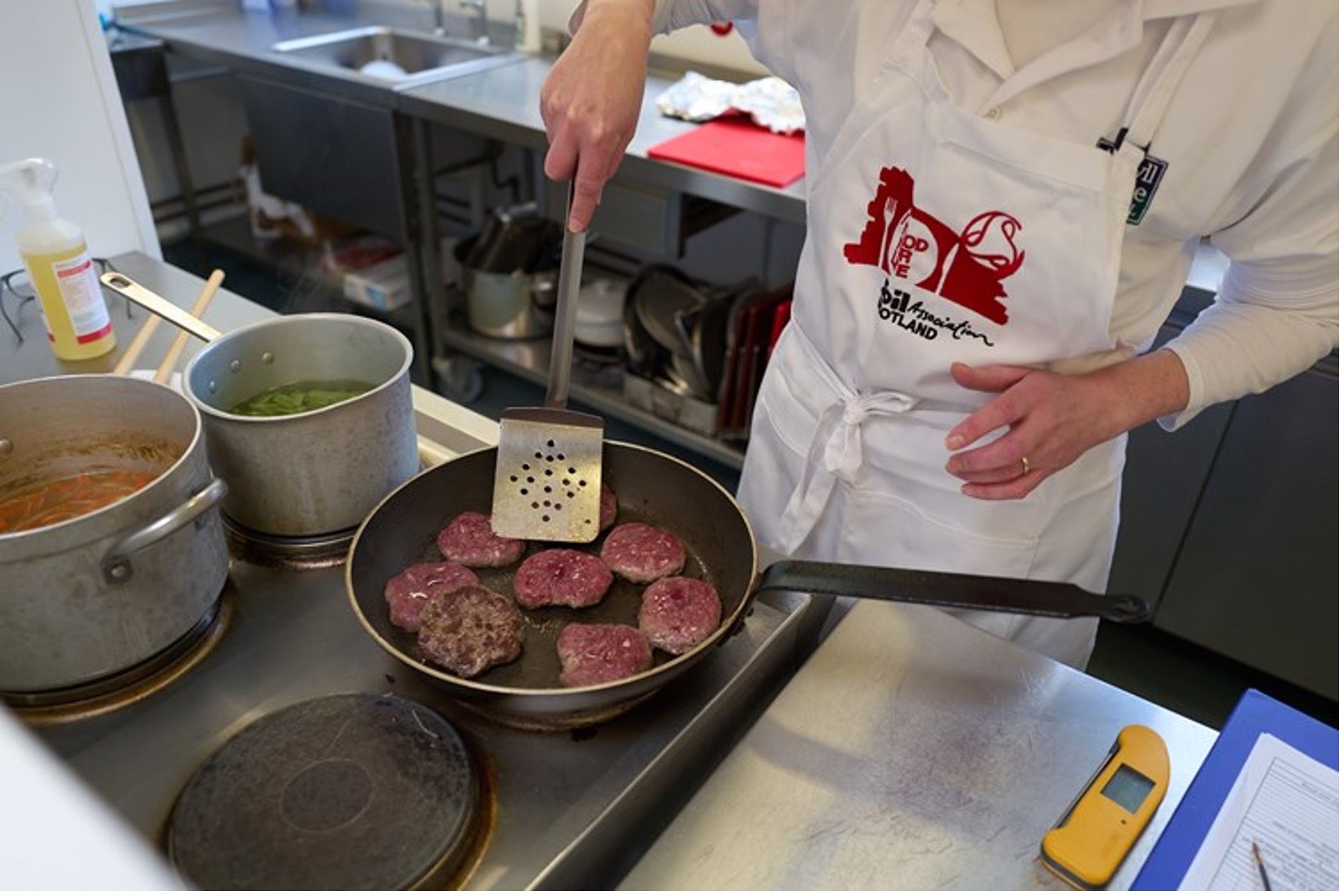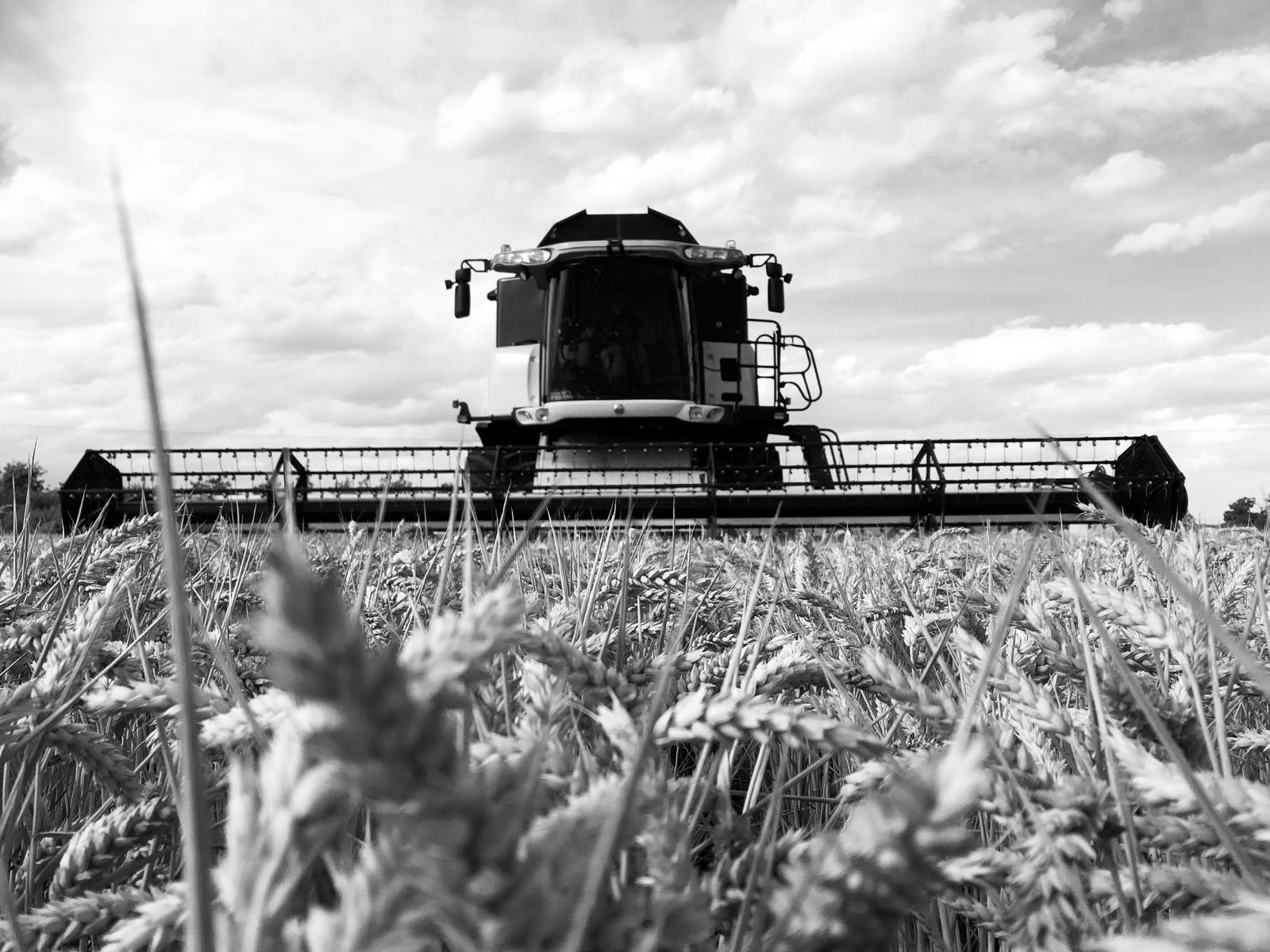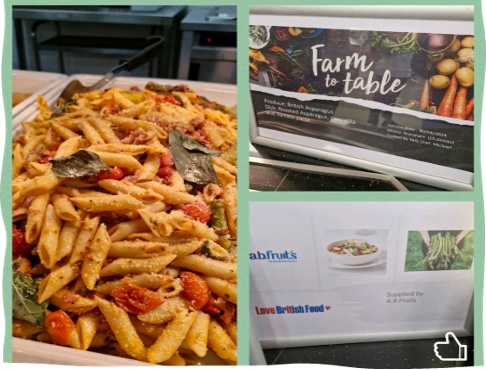Sheffield Teaching Hospitals (STH) comprises 5 adult acute hospitals and a full range of community services in Sheffield. STH is one of the largest employers in the region with around 18000 staff.

The Catering Department, managed by a team of dedicated professionals is responsible for providing safe, nutritious and healthy meals to all patients, staff and visitors in line with public health requirements.
We do this through operation of our main cook chill production facility (CPU) which produces in excess of 38,000 meals weekly and is based on site at Northern General Hospital, supported by a number of finishing kitchens, ward meal regeneration, Trust operated dining rooms and coffee shops.
STH Catering has been consistently accredited to the Soil Association Food For Life Served Here (FFLSH) Bronze Standard since 2015 for the provision of patient meals and main meals in dining rooms. Based on their principles, 76% of the patient menu in 2020 was freshly produced. Meals produced are made using fresh, local and UK sourced ingredients where possible.
The following examples illustrate our commitment to the key principles of the FFLSH standard and the ‘Love British Food’ campaign, which bring multiple benefits to the local community and UK economy as a whole, whilst building on the quality and sustainability of services provided.
Animal welfare and food provenance
STH spends in excess of £500,000 annually on meat which carries the Red Tractor and Farm Assured standards. British welfare standards are some of the highest, preventing certain adverse practices in livestock farming which is still legal elsewhere. This means a high quality of meat is used in our recipes.

Savoury Minced Beef with Homemade Cheese Cobbler, a popular choice on our patient and retail menu includes British beef and Henderson’s Relish made in Sheffield.
Local supply and local suppliers
All beef, chicken, gammon, turkey, pork and lamb used in our recipes are sourced from J W Young based in Sheffield who has supplied STH for over 25 years. Prior to obtaining FFLSH the price of product was a key consideration in choosing components of a menu and meat in many cases was not UK sourced.
STH has been working in partnership with JW Young for 7 years to provide regional and UK sourced meat and there is a noticeable positive difference in the quality and flavour of meat used. Whilst UK farm assured sourced meat is more expensive than none-UK sourced, we have observed less wastage since choosing British due to improvements in the yield within dishes.
Catering for a large population such as a hospital has become an opportunity to source British products from nearby suppliers. This supports the local economy, reduces food miles and allows for quicker response times to delivery. Building relationships with small scale suppliers is a key step, ensuring that the supplier feels valued. They should recognise and be recognised for supporting the feeding of patients, staff and visitors in their local hospitals. Taking the time to source nearby products can also be beneficial during uncertain times of food supply, when food producers often rely heavily on imported goods from abroad. It is likely that the availability and supply of food is more assured when sourcing products nearby.
Mike Maloney's Country Butchers & Bakers in Newark is located about 30 miles from the CPU. They supply Red Tractor Assured pork pies, sausage rolls and scotch eggs to the hospital, which are offered to patients as nourishing snacks. Traditional products like these are likely to be produced to the best standards by suppliers in Britain. Maloney’s source their pork from nearby farms in Doncaster, Wolverhampton and Chesterfield. Both the flour and butter used in the pastry products are also UK sourced.
Brook Bakery, located just 2 miles from the CPU, bake fresh pre-packed goods for the dining rooms and café bars. Staff and visitors are offered a variety of sweet treats, such as teacakes, scones and lemon drizzle cake. Dining rooms also offer freshly prepared deli style sandwiches, made using Brook Bakery products.
Supporting established food producers from the local area such as Maloney’s and Brook Bakery also increases the awareness of brands which consumers at STH may have not known are on their doorstep. This further contributes to the local economy and supports the community.
Seasonality
At STH a 2 week rotating patient menu is designed twice a year, for Autumn/Winter and Spring/Summer. Developing new menus with the seasons allows for seasonal produce to be used in the recipes. This is when the product is at its finest quality, availability and price. The Spring/Summer 2022 menus feature Moroccan Lamb Tagine, utilising British spring lamb, and Courgette & Potato Frittata, when courgettes are at their optimum taste and texture in the Summer.
Eggs from free range hens
All eggs used to make the Courgette & Potato Frittata described above and all other egg based dishes featured on our menus are British Free Range.
Patient Satisfaction
Patient satisfaction rate has increased year on year after obtaining the Soil Association award in 2015. Over a 3 year period the patient satisfaction rate increased by 5%. Swapping to more British products is likely to have been a contributing factor to this increase. Analysing the views of the consumers after significant changes to the catering production can be a useful tool, such as when moving to more British products. Surveys and questionnaires form a key part of the quality agenda at STH. Unfortunately, due to the COVID-19 pandemic, limited exposure on wards has resulted in difficulties carrying out surveys with patients over the last 2 years. A key quality objective for STH Catering department is to re-establish surveys and questionnaires.
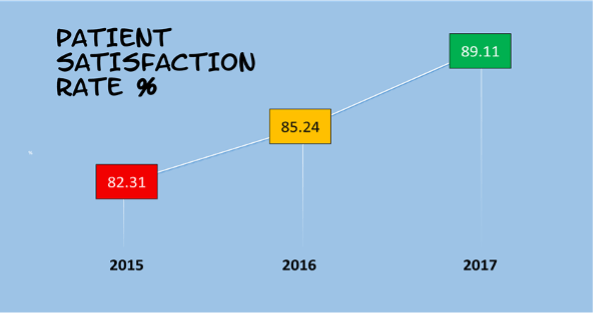
‘Great Food, Good Health’
From a dietetic point of view, including British produce in the production of hospital meals and showcasing it on menus for patients, staff and visitors is beneficial in multiple ways. Featuring seasonal British produce on menus can be an educational tool for consumers about what to purchase when, whether from supermarkets or farm shops. The vitamin and mineral content of certain foods, such as vitamin C in fruit and vegetables, can degrade over time. If food has not had to travel as far, it is likely to be consumed quicker, and therefore the micronutrient content will be better. Lastly, the food offered in hospitals should provide ideas and inspiration to patients, staff and visitors on how to have a healthy, balanced diet. British products such as milk, meat, fruit and vegetables, are all quality products which are recommended as part of the Eatwell Guide.
Public health campaigns like consuming less but better quality meat means that recipes have been adapted by the Food Production Manager and Head Chef, to reduce the proportion of meat and increase the vegetable content. An example of this is the Butternut Squash and Chicken Curry available on our Spring/Summer menus.
Future Planning
STH are constantly striving to improve the provision of healthy, sustainable meals using British produce. Work has started on upgrading the plant based options for the patient and retail menus, which will include plant based products from Wiltshire based supplier Devils Kitchen. A game pilot is also underway, which will feature lean, high protein meat such as venison from England and Scotland.
Share:
You may also be interested in...

